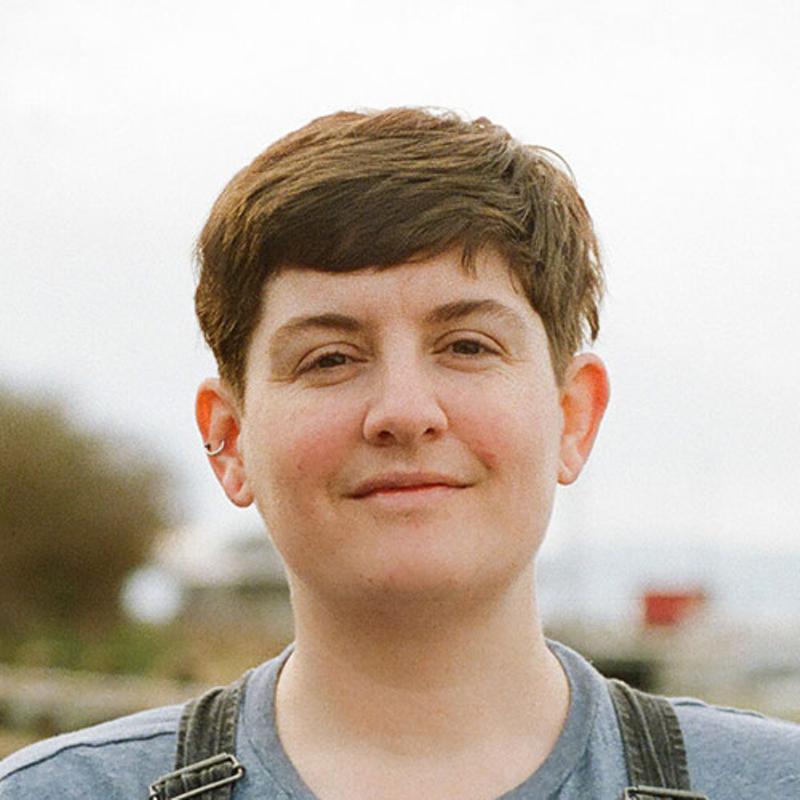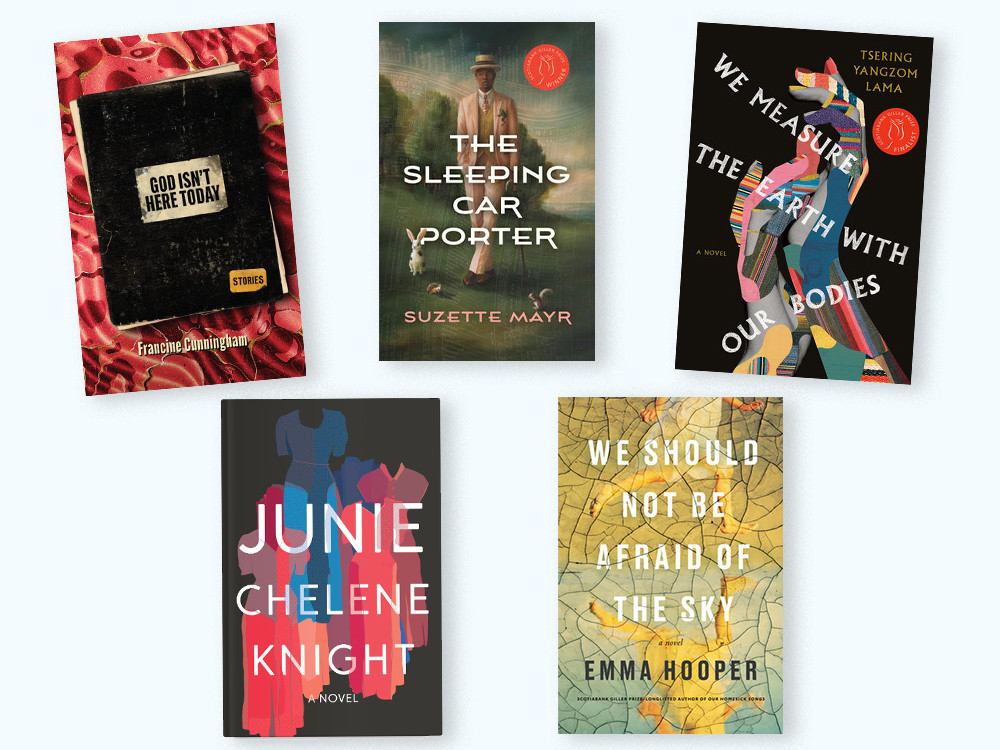Five authors based in Canada have made the inaugural Carol Shields Prize for Fiction longlist, announced this morning.
The winner of the prize is set to receive US$150,000 — about C$206,000 — and a writer’s residency at Fogo Island Inn in Newfoundland. Four finalists will receive US$12,500 each. Publishers from the U.S. and Canada submitted over 250 entries, read by a five-person jury including Anita Rau Badami and katherena vermette.
In B.C., Chelene Knight’s Junie and Tsering Yangzom Lama’s We Measure the Earth with Our Bodies won spots on the longlist.
In Alberta, it’s Francine Cunningham’s God Isn't Here Today and Suzette Mayr’s The Sleeping Car Porter.
Mayr’s book previously took home the Giller Prize, while Lama’s was shortlisted.
Emma Hooper’s We Should Not Be Afraid of the Sky rounds out the list of authors whose books carry a little maple leaf emblem beside their catalogue entries. The longlist also includes 10 books from U.S.-based authors, including Lisa Hsiao Chen’s Activities of Daily Living and Liana Finck’s graphic novel Let There Be Light.
Executive director Alexandra Skoczylas said the idea for the prize emerged in 2012, following a panel discussion at the Vancouver Writers Festival that surfaced disappointing readership, review and prize statistics for books written by women.
The statistics are similar and still disappointingly relevant a decade later. Some are quoted in the press release for the prize: women writers earn 45 per cent less than their male counterparts; men make up 55 per cent of readers for the top 10 bestselling male authors, but only 19 per cent of readers for the top 10 bestselling women authors.
The prize was named for novelist Carol Shields because she’s a beloved, Pulitzer-Prize-winning author, Skoczylas said. But also because she embodies the North American reach of the prize, which seeks to boost the work of women and non-binary authors — while recognizing that the issues facing these books aren’t unique to Canada, or to the U.S.
“Because she was born in the U.S. and spent most of her life in Canada, she represents that dual country nature of the prize, and of the foundation,” Skoczylas said.
“Carol Shields said of her work, ‘I’m interested in writing away the invisibility of women's lives,’” Skoczylas said. “And that was the challenge that felt appropriate to us to take on.”
Shields, who died in July 2003 in Victoria, B.C., of breast cancer, was born in 1935 in Oak Park, Illinois. Married in June 1957, the same month she graduated from college, she moved across the continent to Vancouver to live with her new husband, an engineer named Don Shields. Together, they had five children. Shields’ writing career began in the midst of this; she had her third child in 1962 and sold her first short story the same year.
She’s best known for her novel Stone Diaries, which won the Pulitzer Prize in 1995 and has sold over a million copies. In a reader’s companion to the text, Shields wrote that being a mother had given her “a unique witness point of the growth of a personality.”
In 2002, reflecting on being labelled a “women’s writer,” Shields told the NPR’s Terry Gross that she was concerned about was a hesitancy to put women characters at “the moral centre of the novel.”
“If one puts a male character there instead of a woman,” she continued, “the novel always seems to be taken more seriously.”
But proof of the strength of Shield’s focus emerges in how her work resonates with readers hungering for better, more interesting depictions of women.
“One of the pleasures of Shields’s work,” Naomi Huffman writes in the New York Times, for example, “is encountering women characters who are so fully realized.”
The prize’s desire to address inequalities in reviewing, reading and prize culture underpins its decision to be trans-inclusive and inclusive of non-binary writers, as well as the foundation’s broader goals, which include plans to offer mentorship and scholarship opportunities to BIPOC writers, emerging writers, writers who might need help with child care, and new immigrants, Skoczylas said. The goal is to remove barriers to encourage the success of diverse, important fiction.
Beyond the statistics, Skoczylas said, there are also more philosophical questions to pose.
“It’s a whole other topic, but, what is women’s fiction?” she asked. “The fiction that we're presenting on our longlist is an amazing wide range of writing by a wide range of women and non-binary writers that shows a wide range of points of view.”
The first two years of the prize are supported by a US$200,000 donation from BMO, its flagship sponsor.
“We are hoping that we will be able to build an endowment to to build ongoing support for the prize into the future. That's one of our next key jobs,” Skoczylas said.
The prize’s shortlist, which will whittle the longlist from 15 down to five, will be announced April 6.
“If I had one last message,” Skoczylas said in a phone interview, “it’s that we want people to read the longlist. That's what it's all about. I want people to read books by women and by non-binary writers.” ![]()
Read more: Books

















Tyee Commenting Guidelines
Comments that violate guidelines risk being deleted, and violations may result in a temporary or permanent user ban. Maintain the spirit of good conversation to stay in the discussion.
*Please note The Tyee is not a forum for spreading misinformation about COVID-19, denying its existence or minimizing its risk to public health.
Do:
Do not: